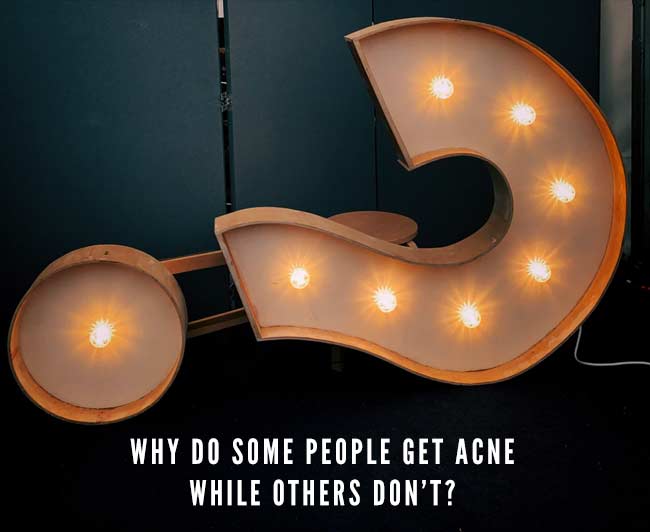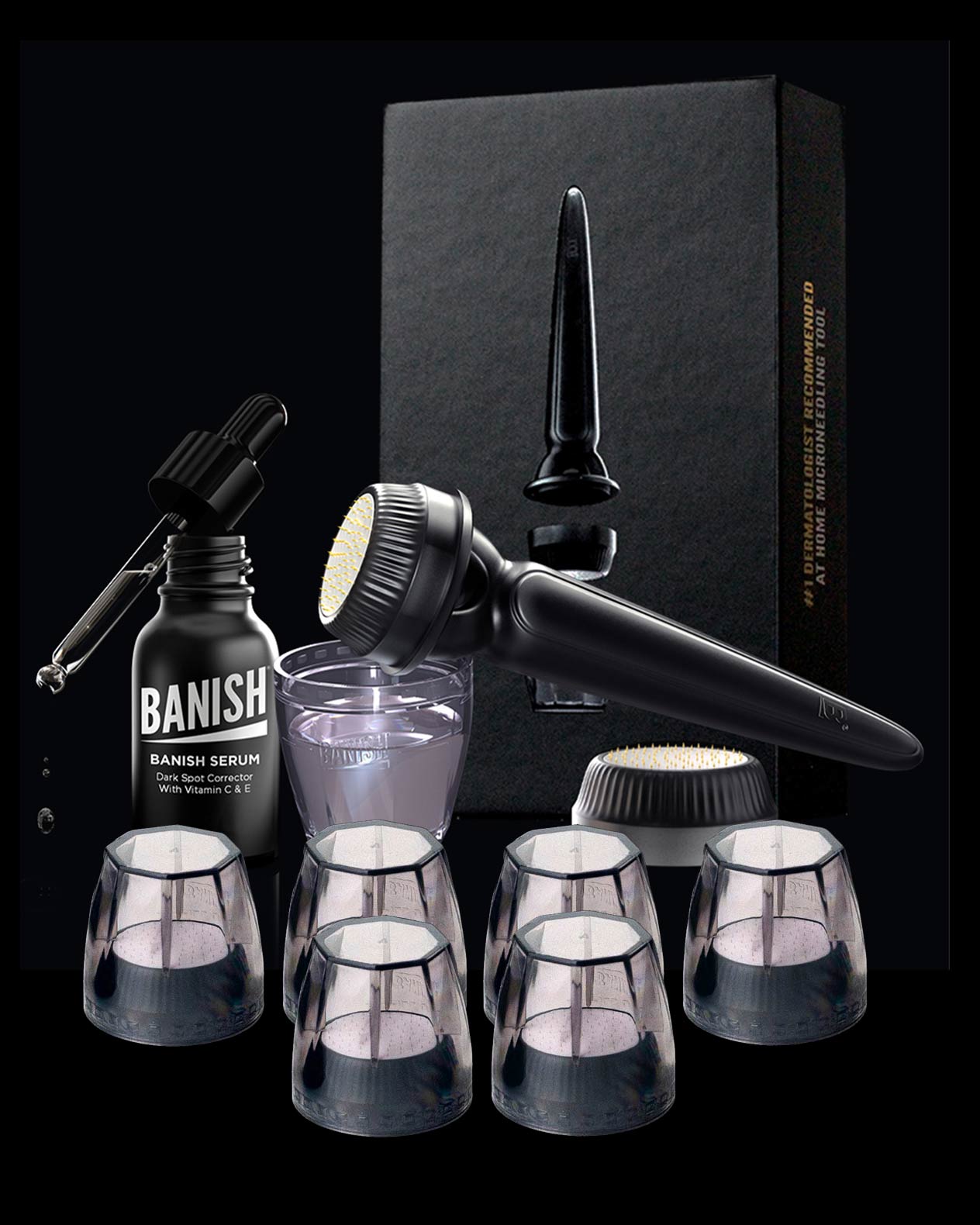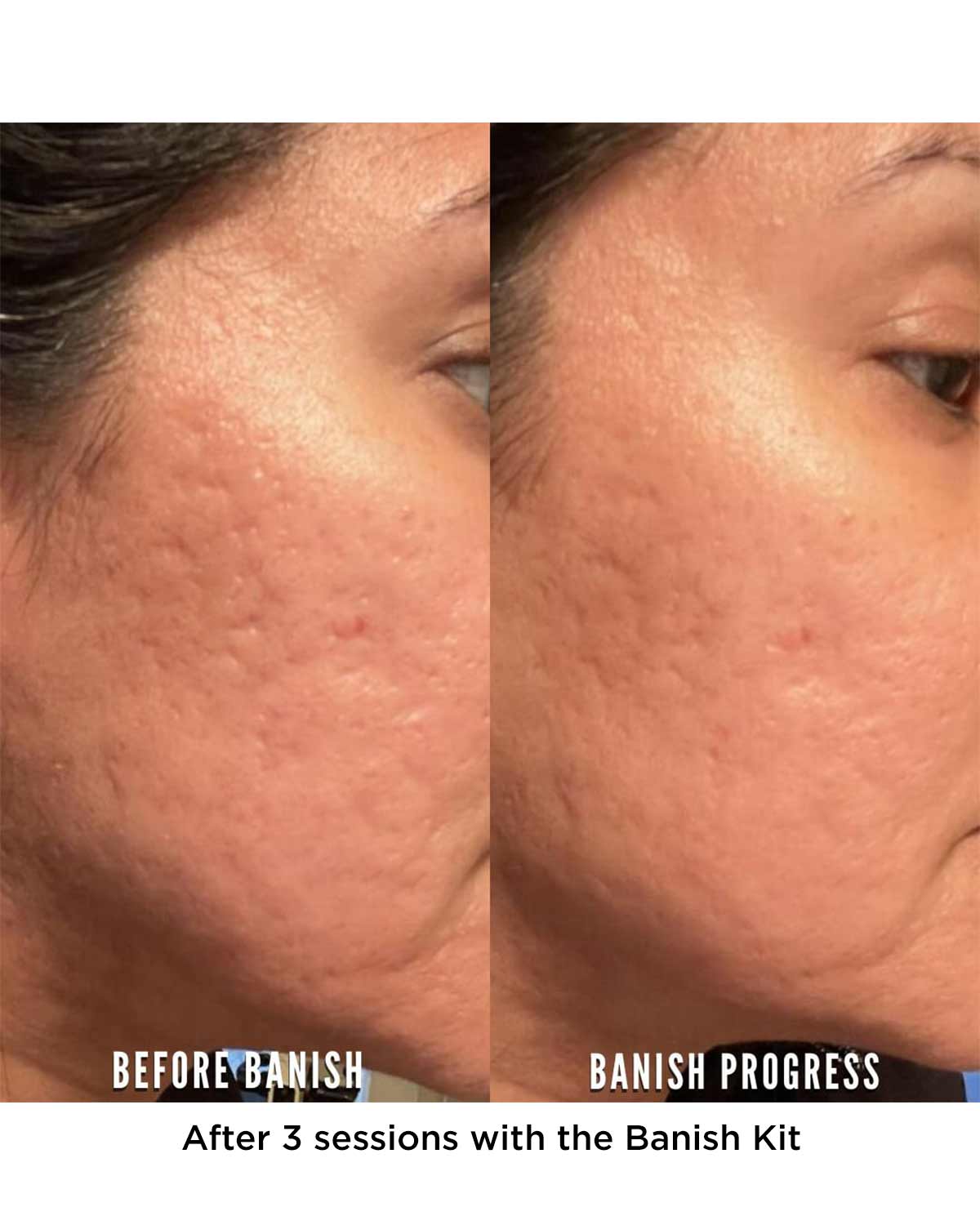
Many people come to me with skin problems and tell me that they have sensitive skin. Not worrying about semantics, they usually do - sensitive skin is very common.
Sensitive skin is usually easily irritated, dry, sometimes flaky, painful, red, inflamed ... the list goes on. It's a tricky skin type/condition to deal with when searching out a good skin care routine. It's almost like playing Russian Roulette with your poor skin.
But is it really sensitive skin, or is it sensitized skin? For some of you, it may not make a difference one way or the other, but for those of you with sensitized skin - it could make a world of difference.
Sensitive Skin
This type of skin is the skin type we were born with, skin that is written in our genes to be sensitive, to respond outlandishly to even the slightest stimulation. For some of us, we know what type of skin this is - for example, my decolletage area is alarmingly sensitive to anything I apply there, and to touch. It goes beet red if I so much as brush my hand against it. This is sensitive skin, and it has always been that way for me, as long as I can remember.
People with sensitive skin can come from all walks of life, but it usually involves people with fair skin, people whose skin easily flushes, burns, etc. These people likely suffered from eczema as children, who needed to use unscented soaps throughout their life because even the smallest amount of fragrance ingredients could easily dry out and irritate their skin. These are the people who have sensitive skin.
The easiest way to put it is that sensitive skin is inherited.
Sensitized Skin
Sensitized skin, on the other hand, could come about suddenly in adulthood due to environmental aggressors, things like medication, persistent improper cleansing, the use of harsh or damaging products, stress, as well as other lifestyle factors. This skin is considered more delicate with a lower amount of pigment, a thin epidermis, and blood vessels close to the skin surface. Sensitive skin is often the result of a defect in the skin’s protective outer layer, the epidermal lipid barrier layer, which may allow irritants, microbes and allergens to penetrate the skin and set off a pattern of inflammation. A disturbed epidermal lipid barrier is a major component in several inflammatory skin diseases, like rosacea, atopic dermatitis, psoriasis and eczema.
Sensitized skin is acquired. The difference is that there's very little we can do to prevent sensitive skin - it's just the skin we were unfortunately stuck with, but there is a lot we can do to prevent sensitized skin, not to mention treat it and get our skin back to "normal".
For sensitive skin, it's simply best to keep using extremely gentle, fragrance-free, non-irritating products. I know that this limits our choices somewhat, but look for antioxidant-rich, skin-similar ingredients, ones that nourish and repair rather than dry or pull away sebum.
How to Cope With Sensitive Skin
How to Treat Sensitized Skin
The tell-tale signs of sensitized skin:
Thin, translucent in appearance
Dehydrated
Excessive dryness, uneven texture, and rough patches
Tightness after washing, and stinging on product application – or even simply when rinsing with water
Broken capillaries
Erythema (redness)
Blushing and itching, burning sensations
Small, rash-like bumps or breakouts
Thankfully, because sensitization is a response to an external or introduced factor, and is not driven by genetics, it is possible that sensitization may be fully reversed with changes in environment, habits, etc.
1. The obvious first step in treating and reversing skin sensitization is removing as many triggers as possible. Lifestyle choices that are under our control like smoking, alcohol and caffeine consumption, should be ceased to eliminate it as a trigger. Likewise, stress management techniques may help with stress triggers.
2. Look for gentle, non-stripping cleansers. Your skin should not feel tight or dry or too clean after washing. Generally avoid foaming cleansers, which are often very drying. A gel cleanser or anhydrous (waterless) cleanser may also be ideal for skin that is also sensitized to water.
3. Look for sprays, creams and serums chock full of antioxidants, calming ingredients like oat, and skin-repairing ingredients like B5.
4. Treat underlying, root problems first. Some people have acne caused by sensitized skin and are so busy trying to treat their acne, sometimes making their skin worse, that they fail to realize that treating the sensitized skin would actually improve the secondary problem, the acne itself. Always repair the skin prior to treating the side effects of the damage.
5. Avoid the sun, or use adequate SPF in your moisturizer or under makeup. UV damage can lead to further or continued exacerbation of sensitized skin.
------------------------------------------------------------------------------
Guest Blog By:

I first got acne in high school, and it came back in my early adulthood. I was able to struggle through those difficult times and come out of it a stronger, wiser, healthier person as a result. I'm here to help you do the same thing!
























1 comment
Emily
Hello! I have absolutely horribly sensitized skin from using way too many harsh acne treatments at once and never moisturizing. I’ve been dealing with this for about a year, and dermatologists haven’t been of any help. I have all the tell tale signs; redness, breakouts, clogged pores, extreme tightness and dryness (yet excessive oil production,) burning, etc.
I’ve tried cleansers, moisturizers, oils, etc ad infinitum and all seem to just stay on the surface and irritate my already irritated skin
Would you recommend just washing with water to allow skin to rebalance?
Thanks much!
Leave a comment
All comments are moderated before being published.
This site is protected by hCaptcha and the hCaptcha Privacy Policy and Terms of Service apply.